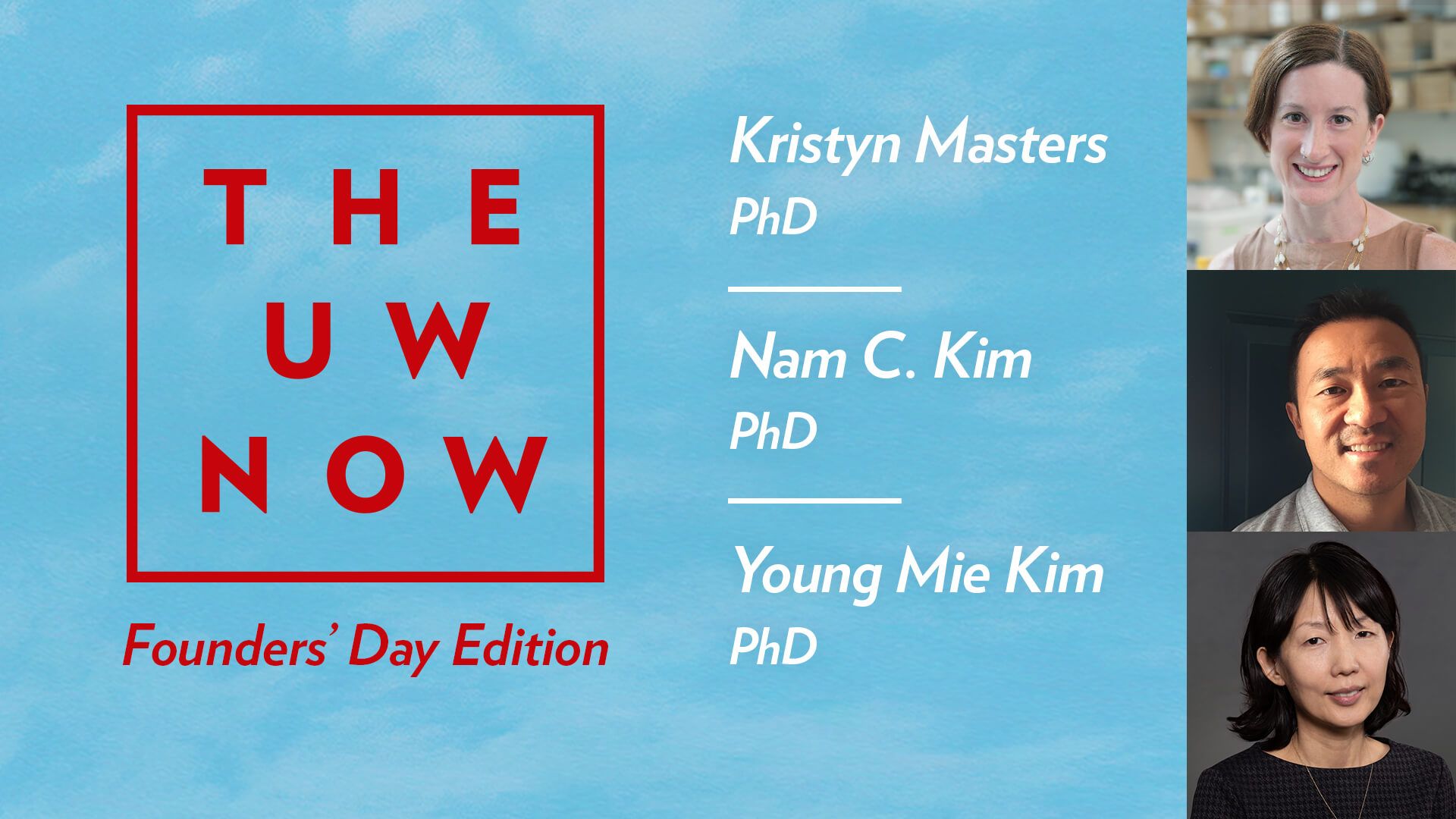More than 17 decades after its first class, the University of Wisconsin–Madison has risen from a small, provincial school to become one of the world’s leading institutions of higher learning.
“Since that first day of class on February 5, 1849,” said Mike Knetter, president and CEO of the Wisconsin Foundation and Alumni Association, “UW–Madison has grown to be one of the top research universities in the world.”
Knetter joined with Wisconsin Alumni Association executive director Sarah Schutt to celebrate UW–Madison’s Founders’ Day during The UW Now Livestream on February 2. The event highlighted the role and scope of the university’s researchers and featured a conversation with three faculty representing different fields: Kristyn Masters of biomedical engineering, Nam C. Kim of anthropological archeology, and Young Mie Kim of journalism and political science.
Tissues in a Dish
Masters described the efforts of her lab in engineering tissues — a field that she fell into by accident. When she first came to the UW, she was trying to grow healthy “tissues in a dish,” but found that she had more success growing diseased tissues. But this, too, offered an opportunity to learn important things.
“Making diseased tissues in the lab could actually help us understand why diseases happen, so that’s understanding disease pathogenesis,” she said. “It could help us identify new treatments. It could help us test new treatment strategies.”
Vietnam’s Camelot
Nam C. Kim’s work grew out of his personal history. Born in Vietnam during the war, he and his family escaped just before the fall of Saigon. Today he returns to Co Loa, the 2,300-year-old site of Vietnam’s first city, to investigate one of the oldest and most storied locations in Vietnamese culture, a place he likens to Britain’s Camelot. He also studies the origin of warfare in human cultures, considering whether, for instance, war is a learned behavior or evolved instinct.
“There’s an ongoing and very intense debate about the origins of warfare,” he said. “Some say that it’s learned behavior. Some say that it’s part of our own biology, that we’ve evolved to be violent.”
Following the Biggest Stories
Young Mie Kim’s research has followed one of the current year’s biggest stories: “My team investigates the sources, responses, content, and targets of efforts focusing on election disinformation,” she said. She noted that disinformation campaigns are highly targeted and exploit current political divisions and that such campaigns were the direct inspiration for the insurrection at the U.S. Capitol on January 6.
At the beginning of the event, Schutt shared an audio clip from a 1941 Founders’ Day radio broadcast. Looking at the university’s history, she celebrated its durability. “Through pandemics, wars, economic crises, and transformational social movements,” she said, “UW–Madison stands strong and keeps moving forward.”
To hear more from the speakers, view a recording of The UW Now. The series is offered live on Tuesday nights via YouTube. The next event will take place February 9 and will look at the future of higher education in Wisconsin.









